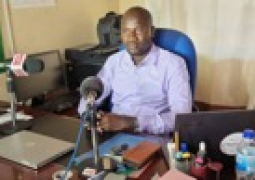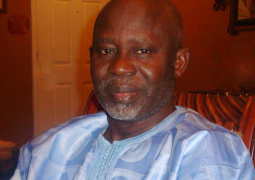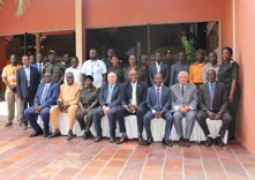He was ordered to compensate the complainant a sum of D22,000 in default to serve 6 months in prison.
In her judgement, she told the court that by a charge sheet dated 1st April, 2021, the convict was arraigned before the court on a single count of stealing from a person contrary to Section 256 of the Criminal Code Cap 10 Vol. 3 Laws of The Gambia 2009.
She stated that the particulars of offence alleged that the convict on or about the 20th December, 2021, at Bakoteh, in the Kanifing Municipality of the Republic of The Gambia, stole from one Mariama Bah an Iphone 6plus mobile phone valued at D22,000. She asserted that the convict pleaded not guilty.
To prove its case, the prosecution called three witnesses and tendered a voluntary and cautionary statement as exhibits A & B. She noted that the convict gave sworn evidence and did not call any witness.
“The burden of proving the guilt of the accused person for the said offence lies on the prosecution and this, the prosecution can establish either by direct, circumstantial evidence or the confession of the accused which is considered as the best evidence in criminal trial, provided that such confession is made voluntarily. In any case the burden must be discharged beyond reasonable doubt,” She adduced.
The presiding magistrate said that from the totality of evidence before her, she was of the view that the only issue for determination in the trial stood out to be one, which was whether the prosecution had proved its case against the accused person.
She noted further that it was the prosecution’s case that on the 20th December, 2021, the accused person forcefully snatched the complainant’s phone mark Iphone 6plus which caused her injury and her hand bled. The complainant went home and reported the matter to her brother. Her brother saw the complainant’s bleeding hand. He went round with the complainant to look around to see whether they would see the culprit. There was a cassava farm nearby and when they entered there, he saw the accused person and also noticed blood stain on his forehead. The complainant identified the accused as the culprit. There, the complainant’s brother caught him and asked the complainant to go and report the matter at the police, which she did. The complainant later returned to the scene with a police officer and the accused was handed to him.
She said in her judgement that the accused on his part denied the charge but admitted that he was found at the cassava orchard. The accused said that that was the place he sits when he was not at work.
“The prosecution tendered in evidence the voluntary and cautionary statements of the accused person. They were admitted as exhibits A & A1 after their voluntariness was tested during a mini trial, as the accused raised the issue of force during the making of the said statements. In that mini trial, I found as a fact that Exhibits ‘A’ & ‘A1’ complied with Section 31 (2 ) of the Evidence Act,” she told the court.
She further said that it was now settled law that once a cautionary statement has been admitted in evidence, it becomes part of the case for the prosecution and a trial judge is bound to consider its probative value. “For a full admission of guilt to qualify as a confession, it must be direct and positive as far as the charges are concerned,” she asserted. She cited some authorities to support her judgment. She also referred to the statement made by the convict at the police, confessing.
“Based on the above, I find and hold that the prosecution has discharged the burden placed on it by law. Thus, I find the accused person, Abubacarr Jaiteh, guilty and accordingly convict him as charged,” she concluded.
Sub-Inspector Jammeh the prosecuting officer, led the prosecution witnesses in their testimonies.





